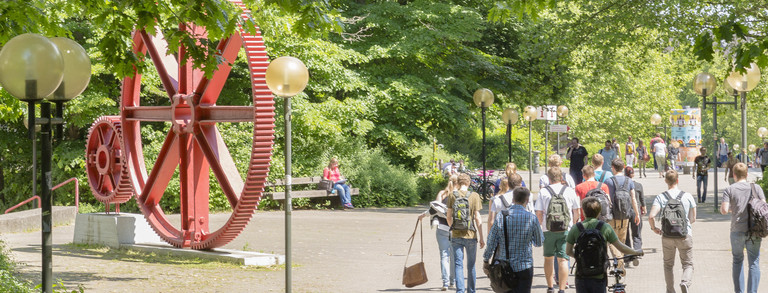Parameter identification
Moodle info
The course contents as well as all further information about the course "Parameter identification" in summer semester 2025 can be accessed via the "Moodle Course".

You are here:
The course contents as well as all further information about the course "Parameter identification" in summer semester 2025 can be accessed via the "Moodle Course".
Usually, predictive simulations are used in order to optimise processes, existing components or new prototypes. For reliable and meaningful results, however, suitable values for the underlying material parameters are required, which are not known a priori, especially for complex material models. The goal of parameter identification is thus the transition from phenomenological and theory-based material models to the application in the design of real components. In this context, numerical optimisation is used as a tool to fit a selected material model as closely as possible to the actual behavior of a given material.
Accordingly, the first part of the lecture is dedicated to numerical optimisation. Participants will get a broad insight into the background of numerical optimisation and common optimisation methods, their applicability, as well as advantages and disadvantages. Thus, decisions in the field of optimisation can be critically scrutinised, suitable routines can be chosen according to the application and, if necessary, adapted accordingly for arbitrary optimisation tasks.
In the second part, the specific application in the area of parameter identification is discussed and an overview of common procedures for solving the so-called inverse problem is given. Starting with the algorithmic construction of a suitable routine, all important contents for the execution of a parameter identification are explained, over the recording of experimental data up to the verification and validation of the obtained results. After successful participation, students are not only able to solve the problem of parameter identification numerically, but can also make important decisions according to any situation at hand themselves and evaluate results critically. The contents of the course cover the following points:
Cycle: Summer semester
The module basically consists of a weekly lecture and a weekly exercise. The exercise will take place as a programming exercise in the CIP pool. The details about concrete times and rooms, as well as all further information, can be found in the Moodle course.
The examination consists of a student project with presentation and oral examination.
